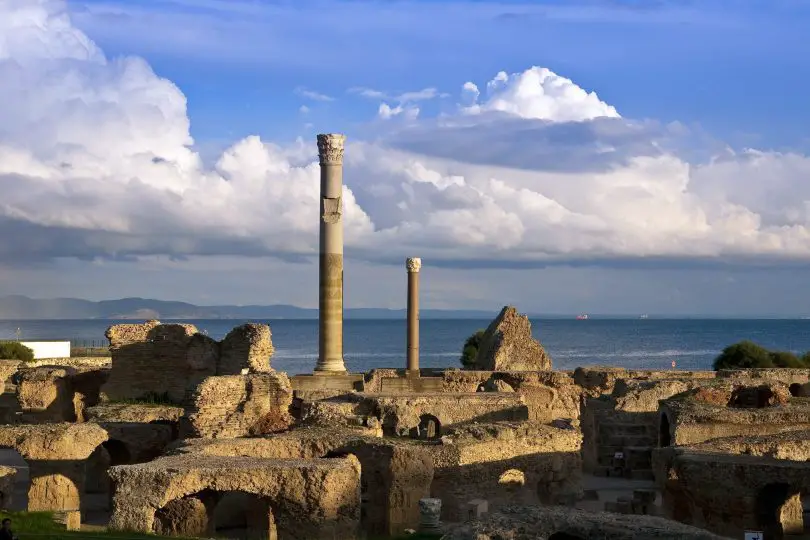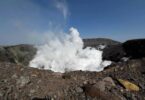Hugging North Africa’s Mediterranean Coast, Tunisia is a wonderful country worth visiting. However, there are some scary facts about Tunisia that you should know.
Over the years, Tunisia has never stopped doling out gifts to tourists, from stunning beaches, magnificent souks and beautiful coastal towns to desert landscapes worth photographing. And how could we forget the historical sites and ancient cities telling stories spanning thousands of years? Even if you aren’t a history buff, you’ll be impressed.
But just like any other country, there are those bad stories you’ll hear about Tunisia. So, let’s not beat about the bush and go straight to the point. Here are some scary facts about Tunisia you ought to know.
Table of Contents
What are the Scary Facts About Tunisia?
With scenic beaches and historic ruins, Tunisia has a large web of dark history that it can’t just elbow away. The following are the scariest things you will encounter when planning on travelling to Tunisia as a tourist.
1. Terrorism

Tunisia terror attack. Photo/ Sky News.
The biggest threat most foreign governments cite in their advisory for those planning to visit Tunisia is terrorism. It is one of the major scary facts about Tunisia. In 2015, a mass shooting occurred at the tourist resort at Port El Kantaoui, which is about 10 kilometres north of the city of Sousse. Twenty-two people, most of them foreign tourists, were killed, and over 50 were injured. As a result, governments have been warning their citizens who want to visit this North African country.
Although terrorism isn’t a daily event in Tunisia nowadays, it remains a big threat because a few terrorist groups are operating. The instability in neighbouring countries makes Tunisia even more prone to attacks. So, always read up on the news before visiting Tunisia and stay away from the borders.
2. Women Get Unwanted Attention
If you are a woman, expect unwanted attention from men in some areas. This is one of the scary facts about Tunisia, and it’s a challenge that many female tourists have faced. Always trust your instincts, be aware of your surroundings, and prioritise your safety. If you don’t feel comfortable in an area because people keep staring at you, you should leave. There have been acts of physical harassment, although extremely rare.
To avoid the likelihood of such instances, dress conservatively. Don’t wear short skirts and strappy tops. Instead, a headscarf or pashmina is great for covering up. Also, respect local customs, and your trip to Tunisia is likely to be a memorable one because you won’t get into trouble with anyone.

Dress modestly when visiting Tunisia. Photo/ WildyNess
3. Weather Can Be Extreme
Tunisia is one of the best places to go if you want to enjoy the summer sun. However, it’s good to note that the Tunisian climate is very versatile. There are days during the summer months when you will need sunscreen to protect your skin because it gets too hot.
During the winter, it can also get too cold to the extent that you don’t feel like leaving your hotel room. If you are planning to travel to Tunisia for sightseeing, the best time to visit is February-April and September-October. During those months, the weather is mild and not too rainy.
4. Petty Crime
Concluding our list of scary facts about Tunisia is petty crimes. Petty crimes such as bag snatching or pickpocketing are relatively common in Tunisia, especially in crowded places such as markets. Be careful because you might lose your phone, cash or worse, identification documents.
Do not wander alone, especially at night, because you might be held at knifepoint and forced to surrender your valuables. Also, do not leave your belongings unattended, and avoid carrying large amounts of cash or flashy jewellery in public. Be cautious with your belongings when using public transport because they might be gone without you even noticing. We recommend you take a taxi when travelling.

Purse snatching can happen in Tunisia. Photo/ Personal Safety School.
What Are 5 Interesting Facts About Tunisia?
- Tunisia has the 4th most important city in the Islamic world. Whereas Mecca is the most important city for Muslims, Kairouan in Tunisia is the 4th most important city for the Islamic community. Kairouan is a centre of Islamic religious activities, such as scholarships and teachings related to Islam.
- Tunisia is a champion for women’s rights. Tunisia is one of the few Maghreb nations that exercises liberty in its governance. For example, women in Tunisia can inherit properties such as land from their parents.
- The colour of mourning in Tunisia is red. Whereas most countries in the world, especially in Europe and America, wear black when going to funerals, Tunisians wear red.
- Tunisia has the largest historical amphitheatre. Built in 238 AD, El Jem is among the biggest and oldest amphitheatres in the world. It has a capacity of 35,000.
- Tunisians are so welcoming. In addition to Arabic, Tunisians also speak English and French, among other languages. This enables coexistence with foreigners.
What is Tunisia Famous For?
Scary facts about Tunisia aside, this North African country is a leading tourist destination due to its golden beaches, sunny weather and a whole mix of history, culture and adventure.
Can Couples Kiss in Tunisia?
In Tunisia, there are special “kissing cafes” where couples can go. You can get arrested for showing PDA through acts such as kissing in public.








